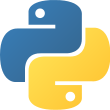Discover valuable machine learning techniques you can understand and apply using just high-school math.
In Grokking Machine Learning you will learn:
Supervised algorithms for classifying and splitting data
Methods for cleaning and simplifying data
Machine learning packages and tools
Neural networks and ensemble methods for complex datasets
Grokking Machine Learning teaches you how to apply ML to your projects using only standard Python code and high school-level math. No specialist knowledge is required to tackle the hands-on exercises using Python and readily available machine learning tools. Packed with easy-to-follow Python-based exercises and mini-projects, this book sets you on the path to becoming a machine learning expert.
Purchase of the print book includes a free eBook in PDF, Kindle, and ePub formats from Manning Publications.
About the technology
Discover powerful machine learning techniques you can understand and apply using only high school math! Put simply, machine learning is a set of techniques for data analysis based on algorithms that deliver better results as you give them more data. ML powers many cutting-edge technologies, such as recommendation systems, facial recognition software, smart speakers, and even self-driving cars. This unique book introduces the core concepts of machine learning, using relatable examples, engaging exercises, and crisp illustrations.
About the book
Grokking Machine Learning presents machine learning algorithms and techniques in a way that anyone can understand. This book skips the confused academic jargon and offers clear explanations that require only basic algebra. As you go, you’ll build interesting projects with Python, including models for spam detection and image recognition. You’ll also pick up practical skills for cleaning and preparing data.
What's inside
Supervised algorithms for classifying and splitting data
Methods for cleaning and simplifying data
Machine learning packages and tools
Neural networks and ensemble methods for complex datasets
About the reader
For readers who know basic Python. No machine learning knowledge necessary.
About the author
Luis G. Serrano is a research scientist in quantum artificial intelligence. Previously, he was a Machine Learning Engineer at Google and Lead Artificial Intelligence Educator at Apple.
Table of Contents
1 What is machine learning? It is common sense, except done by a computer
2 Types of machine learning
3 Drawing a line close to our points: Linear regression
4 Optimizing the training process: Underfitting, overfitting, testing, and regularization
5 Using lines to split our points: The perceptron algorithm
6 A continuous approach to splitting points: Logistic classifiers
7 How do you measure classification models? Accuracy and its friends
8 Using probability to its maximum: The naive Bayes model
9 Splitting data by asking questions: Decision trees
10 Combining building blocks to gain more power: Neural networks
11 Finding boundaries with style: Support vector machines and the kernel method
12 Combining models to maximize results: Ensemble learning
13 Putting it all in practice: A real-life example of data engineering and machine learning
 Language
Language
 Reading time
Reading time
 What you will learn
What you will learn
 Author
Author
 Published
Published
